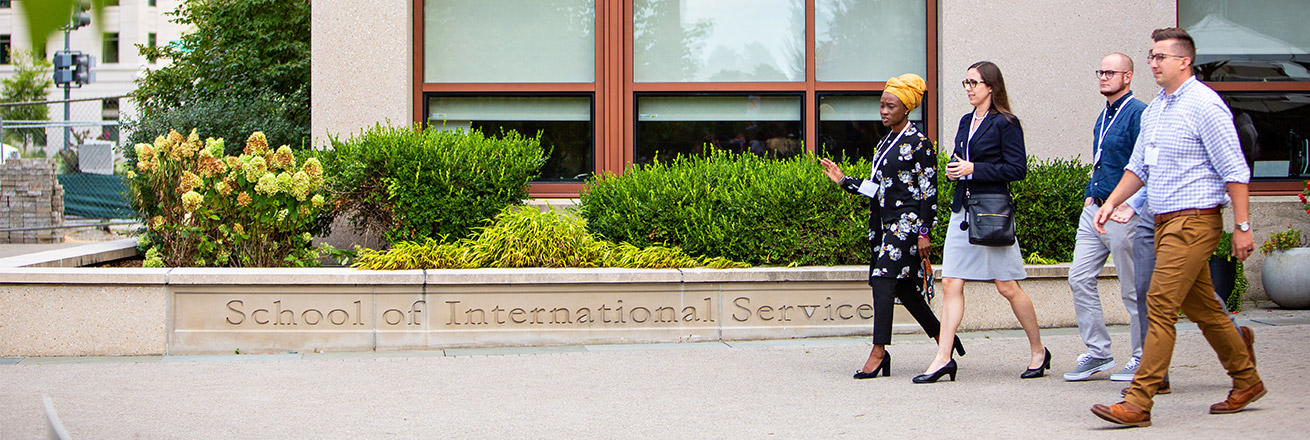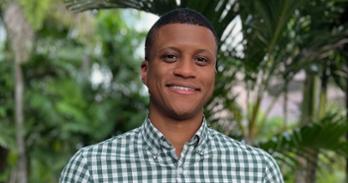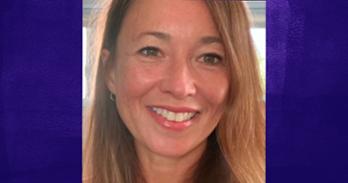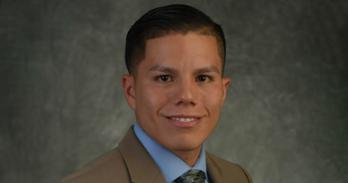Contact Us
Contact:
Rebecca Coughlin
Director, SIS Diversity & Inclusion Initiatives
School of International Service, Room 112 on a map
4400 Massachusetts Avenue NW Washington, DC 20016 United StatesHistorically Underrepresented Groups
SIS defines “historically underrepresented groups” to include people who have been denied access or suffered institutional discrimination in the United States. This includes racialized groups(e.g., African-American, Black, Hispanic, Latinx, Asian-American, and Native American populations), people from low-income families, first-generation college graduates, women (especially in leadership), LGBTQ+ identifying people, people with disabilities, and people in religious groups who have suffered discrimination.
SIS Voices
SIS Values at Work in the World
Diversity, equity, and inclusion are at the heart of our work at the School of International Service. Varied perspectives help generate better ideas to solve the complex challenges of today’s world. For the next generation of leaders, an inclusive approach to diversity will be a pathway to greater creativity, deeper self-learning, transnational cooperation, and enhanced capacity for collective impact. As a top-ten school of international affairs, we have both an opportunity and a responsibility to practice these values in everything we do. SIS embraces our responsibility to prepare students for these leadership roles in the service of the world.
Achieving our goals requires an unwavering commitment to challenge and dismantle racism and other structural obstacles that disproportionately impact historically underrepresented groups in higher education and the professional field of international affairs.
SIS commits to increasing diversity, fostering inclusion, and promoting equity, through the following actions:
- fostering a climate of understanding and support to enable an inclusive SIS community
- actively listening to, learning from, and reflecting on diverse contributions and experiences of our local and global communities
- recruiting students, staff, faculty, and administrators from historically underrepresented groups by finding talent in communities that have often been left out—including by creating strategic partnerships and pipelines
- enriching course curricula and scholarship to broaden representation of voices and viewpoints and move beyond overreliance on white, male, Western sources that have historically dominated the field
- increasing the use of inclusive pedagogical approaches in the classroom—which integrate historically underrepresented scholars, methods, and topics—to better serve all students
- advancing knowledge that values marginalized methods and topics to broaden the field and its audience while creating space to amplify works of historically underrepresented scholars
- preparing students to practice inclusion and empathy across difference in their careers and lives
- training all students, staff, faculty, and administrators to engage with a wide variety of people, ideas, cultures, and traditions
- using our social capital to expand professional and educational pathways for students from historically underrepresented groups
- expanding financial and other resources designated for making student access to academic, experiential, and professional development opportunities more equitable
- offering programs and events to highlight both diverse topics that often have been excluded from discourse as well as structural inequities that inhibit the field of international affairs
Mission, Vision, and Values
The Advisory Council’s mission is to assist the school in building an increasingly diverse and inclusive community, culture, and curriculum. We envision an SIS community that embodies and cultivates an inclusive and antiracist pedagogy across all programs and student levels as well as an antiracist approach to our planning and programming.
We believe that the values of intercultural competence and inclusive excellence are critical not only to fulfilling our mission of educating and preparing students to wage peace and serve humanity but also to our collegial interactions that model navigating difference with respect and empathy.
We will continue to work toward a community where students, faculty, and staff are empowered to risk honesty and express themselves freely in a supportive environment that fosters curiosity and self-awareness while valuing difference. With a commitment to equity, we will build a community where everyone feels welcome and thrives.
Current Members of the Advisory Council
-
Co-Chairs
- Rebecca Coughlin
- Steve Silvia
-
Faculty
- Horace Bartilow
- Susanna Campbell
- Maria de Jesus
- Angela Pashayan
-
Staff
- Kay Agoston
- Alison Corbett
- Matt Kaulius
-
Students
- Adam Ropizar (graduate student)
- Keightley Dudgeon (graduate student)
- Nadine Awad (undergraduate student)
-
Asst. Dean
- Rachel Robinson (ex officio)
Mainstreaming Disability and Inclusion
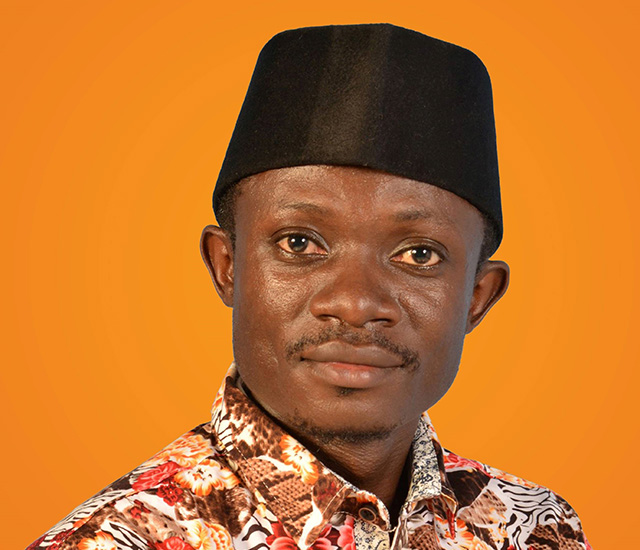
Julius Ogayo, SIS/MA ’24
Disability is a club open for membership at any time.
It is essential to familiarize ourselves with what disability membership entails by actively promoting disability mainstreaming across all areas of human development, particularly in international development. This proactive approach ensures inclusivity and understanding and creates a more universally accessible and supportive society.

